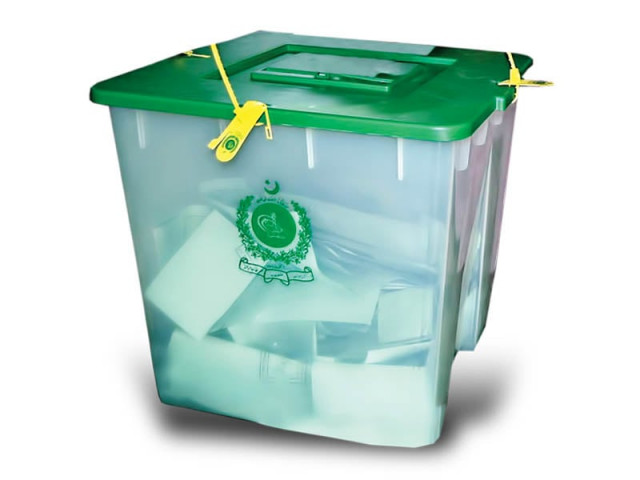Minorities want their representatives to contest on general seats in their constituencies
Politicians expressed their support for the dual voting system for non-Muslims.

Meanwhile, members belonging to various minority communities demanded that they should be allowed to compete for general seats in constituencies where their communities were in the majority during the next general elections.
They were all attending a seminar on the electoral process for minorities, which was organised by the Social Forum, Diocese of Karachi, Church of Pakistan at the Holy Trinity Church.
Muttahida Qaumi Movement MNA Munawar Lal lent his support to the demand when he said, “We want our people to be elected in those areas where we are in the majority”. Lal added that minorities should also be allowed to contest elections on the dual voting system, something which Kashmiri Muslims living in the country are already allowed to do.
Religious minorities in Pakistan, meanwhile, currently contest the elections under the joint electorate system, in which political parties nominate non-Muslim representatives to legislative bodies. The number of minority seats in these bodies are already fixed.
However, participants at the seminar made it clear that the current system did not appear to be serving them well. “Minority parliamentarians follow only their party’s policy. Reserved seats are given to us as [a form of charity]. People-to-people connection between leaders and their constituents is evaporating,” said the diocese’s secretary, Zafar Iqbal.
Younis S Khan, a Christian who heads the Jamaat-e-Islami’s minority wing, said that his party, if it came into power, would introduce the system of dual voting for minority communities.
Pervaiz Rafiq, a minority MPA from Punjab, also lent his support to the dual voting system. “There is no difference between us and Muslims when it comes to paying bills and taxes. But we are discriminated against when it comes to distribution of rights.”
MQM’s Lal said that his if his party came into power, it would remove the word “minorities” from the country’s constitution. He also acknowledged that Parsis, Sikhs and Ahmadis were also not given proper representation.
Awami National Party Sindh general secretary Bashir Jan said that his party did not have a minorities wing, as it considered everyone, regardless of their religion, as equal, and added that the ANP would lend its support to whatever electoral system the minorities decided to go for.
A Christian leader, Zahid Farooq, demanded that non-Muslim women should also be elected on general seats reserved for women.



















COMMENTS
Comments are moderated and generally will be posted if they are on-topic and not abusive.
For more information, please see our Comments FAQ